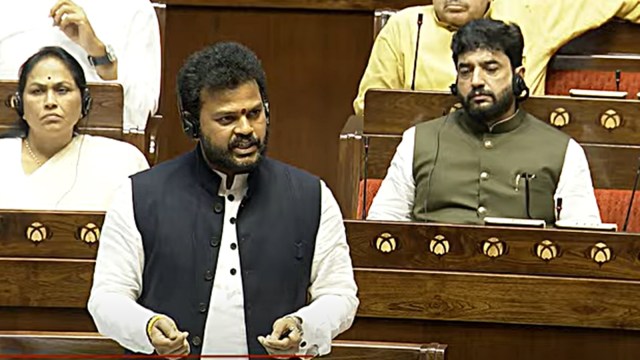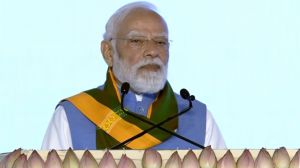Civil Aviation Minister Ram Mohan Naidu Kinjarapu Monday addressed the Rajya Sabha on the investigation into the Ahmedabad Air India plane crash and said the Aircraft Accident Investigation Bureau (AAIB) is totally “unbiased” and conducting the probe as per “international norms”.
In the first Parliament session after the Air India plane crash on June 12, which led to 270 deaths, including 241 on board the London Gatwick-bound AI171 flight, Naidu faced questions on what could have caused the deadly crash and compensation to victims.

Citing the AAIB’s preliminary findings, which said the engine fuel control switches for both engines on the Boeing 787-8 aircraft transitioned from the ‘RUN’ to the ‘CUTOFF’ position shortly after takeoff, BJP Rajya Sabha member Ashok Shankarrao Chavan asked the minister what could have been the reason behind the fuel cut-off.
Story continues below this ad
Replying, Naidu said, “This was a preliminary report… For a definitive answer, we have to wait for the final report. AAIB is conducting the investigation as per international norms. They are totally unbiased and looking at facts alone.”
Chavan said the Boeing 787 Dreamliner is heavily dependent on electronics and that it was a software glitch that led to the engines on a Japan flight shutting down unexpectedly in 2019. He asked whether a malfunction in the electrical system could have been the cause of the fuel cut-off in the Ahmedabad crash, considering that the excerpt from the cockpit voice recording suggested neither of the pilots had switched it off.
Naidu said this was the first time that the country did not have to send the black box to another country for decoding, having set up its own lab for analysing flight data and cockpit recordings. He was referring to the new facility established at the AAIB headquarters in Delhi in April for analysing aircraft flight data and cockpit recordings.
“It used to be that even if there was slight damage to the black box, we had to send it to the original manufacturer to decode it. It was the first time that this was done in India,” said Naidu.
Story continues below this ad
Nationalist Congress Party (SP) Member Fauzia Khan asked what the government was doing about the issue of engine shutdowns during flights. She said that RTI data revealed 65 incidents from 2020 to 2025. She also cited the example of AI131, which was forced to turn back in 2023 after an engine shutdown.
Naidu said there could be multiple issues leading to an engine shutdown, ranging from weather conditions to bird strikes. He said the Directorate General of Civil Aviation (DGCA) does spot checks, night checks, among other measures, as per their annual surveillance and safety plan.
Another BJP member, Satnam Singh Sandhu, asked about compensation and support to the families of medical students who died on the ground during the air crash. The minister said that all casualties, whether passengers or those on the ground, were being treated equally and their families would receive compensation and support from the government.
Rashtriya Janata Dal (RJD) member Manoj Kumar Jha asked about the government’s response to the 2018 Special Airworthiness Information Bulletin (SAIB) from the United States Federal Aviation Administration (FAA) regarding the potential disengagement of the fuel control switch locking feature on some Boeing aircraft.
Story continues below this ad
Naidu replied that there are two types of directives — one that every state has to follow mandatorily and another, such as the SAIB, that does not need to. At the time, the regulator took the call that there was no need for special checks, he said, adding that routine checks were, of course, ongoing. Naidu added that the AAIB also mentioned this in their report in addition to several other angles that are being examined.
Several Rajya Sabha members asked about the vacancies, especially in the technical positions, at the DCGA. To this, Naidu said that several additional positions were created over the last two years, keeping in mind the expanding air travel network in India. This is the reason why some positions are vacant even as the recruitment process is ongoing, he said.
He added that these were highly technical positions, and there is a very small pool of people who qualify, leading to a longer recruitment process.









